You may not understand what inimitable Fela Anikulapo’s early days of Koola Lobitos’ ballistics-sounding song, with the refrain, Alujanjan kijan, was about until you hear the full anecdote. It goes thus: A very debilitating drought had seized the village inhabited by Tortoise, that figurative animal with huge cunning. Hungry and despised, he one day met the dog, known in Yoruba as aja, who offered to help him. That night, they both walked into a huge forest, to the foot of a big Iroko tree, where aja sang the above Fela refrain and a long twine descended. The rope took both of them to the top of a cliff where aja’s long dead mother was waiting for them with assorted cooked food delicacies. As they both ate, the gluttonous Tortoise ate more than his ability, hardly able to maintain a hold of the twine even as both animals climbed back to earth.
A few days later, hit by this strong drought, Tortoise decided to go it alone and walked down to the foot of the tree. Mimicking aja’s voice, he sang the Fela song and the twine loosed down from heaven, which he began to climb with to the top. He was almost atop the cliff when aja suddenly emerged, saw the pretentious Tortoise heading for his mother’s sacred groove and sang to tell his mother that an impostor had attempted to supplant him. Aja’s mother then suddenly cut the rope and Tortoise fell, breaking his protective shell into smithereens, which only, upon healing, got needled together to form a jigsaw-puzzle-like carapace.
The Fela Alujanjan kijan popularized the old anecdote above commonly told at moonlight in pre-colonial Yoruba homes, even up until the immediate post-colony. The refrain, which the bohemian Afrobeat musician gave vent to, usually went with that anecdote and runs thus: Iya,
iya ta’kun wale o//Alu jan jan ki jan. Combined with an analogy authored by adjudged greatest English poet of the Middle Ages, Geoffrey Chaucer, in his 1390 book, The Parson’s Tale, they both seem to tell current Nigerian story in unpretentiously imaginable ways. Chaucer compared curses to young chickens which, after pottering around all day looking for food, at sunset, will surely come home to roost, “as a bird that returneth again to his own nest.”
While Chaucer’s about 700 years-old chicken tale poignantly tells us how man’s inhumanity to his fellow man would come back to haunt him, Fela didn’t elaborate on the motif of his highly eclectic lyrics.
Advertisement
For Nigeria, borrowing from Chaucer’s classic, not only are the chickens of deceit and subterfuge that constitute the building blocks of the country, indeed, her foundation, coming home to roost, the Tortoise with the renowned cunning is about to lose its once beautiful carapace to the game in which it has a notoriety.
The recent de-invitation of Kaduna governor, Nasir el-Rufai to the Nigerian Bar Association’s (NBA) ongoing conference may however be what would push the chickens to roost early enough and permanently lift the veil off the cunning tortoise of Northern Nigeria. Last week, some aggrieved northern members of the NBA reportedly pulled out of the group, founding their own professional group christened New Nigerian Bar Association (NNBA), named after the now rested Northern newspaper megaphone called the New Nigerian.
About the same time, two gallant South West governors, Rotimi Akeredolu and Seyi Makinde seemed to have infuriated the North. Aghast at the bunkum of the Inspector General of Police that his community policing project would be paid for from the purses of the states, both governors frontally disclaimed as hogwash this very wonky call by the IG. South West’s regional
security outfit, Amotekun would not be subsumed under the federal police, the governors hit the IG with a sharp riposte. Hardly allowing the quills to peel off the arrow, a chieftain of the All Progressives Congress (APC), Dr. Garus Gololo, expressed righteous indignation at this and urged leaders of South West to tread the path of pacifism if indeed they wanted power to shift to them in 2023. The owners of Nigeria were talking!
Advertisement
The Gololo sense of ownership of Nigeria has been the pattern of the narrative of northern Nigerian domination and self-acclaimed paternalism of the so-called Nigerian federation since the July, 1966 coup. The good news, however, is that, it appears that the Lord Lugard subterfuge of 1914 is nearing the edge of its tethers and Muhammadu Buhari may be the denouement of that macabre matrimony. Since he came into office in 2015, Buhari has been riding on the crest of a bid to continue to hold Southern Nigeria captive, in line with the unwritten but sworn-to code of the Northern military officers’ coup of 1966.
Since 2015, Buhari has been deploying the Tortoise subterfuge, subterranean dealings and all manner of tomfoolery to get the Bill on National Water Resources 2020 passed by the National Assembly. Notwithstanding the total rejection of the noxious bill by the Bukola Saraki-led Eighth Assembly, Buhari is continuing the decades of
Northern domination without firing a single bullet through this Water Bill. Confronted by the failure of the RUGA policy which was to give beasts and their minders spatial relevance in all the nooks and crannies of Nigeria, the Water Bill is another Buhari ploy to foist a beast-centric policy on the rest of mankind. Its ostensible target is to give cows and their tenders suzerain-hold over land and waters in the whole of Nigeria. If the Water bill is passed into law, offspring of those who desired Nigeria’s split in 1966 would, in the words of Nobel Laureate, Wole Soyinka, have fief-hold and “absolute control over the nation’s entire water resources, both over and underground.”
One hundred and six years ago, Lugard fused the Northern and Southern protectorates into the Colony and Protectorate of Nigeria, according to him, for ease of administration. Before the British, the Portuguese had traversed the Southern region as early as the 15th century through slave expedition. It was only in 1861 that Britain officially took hold of a Nigerian territory, Lagos for the sake of trade, using the veneer of Christianity and anti-slavery campaign as facade.
Advertisement
This was formalized into a system of administration in 1884 and, from 1900 to 1903, going further to control the Southern and Northern Protectorates piecemeal.
This continued until 1914 when the three disparate regions of North, East and West were forcibly soldered into one. One hundred and six years after, what Nigerians have is a country without a sense of unifying national identity and disparate people cramped into single states.
The spiritual essence of togetherness is absent in Nigeria and the peoples are merely cramped into an inconvenient crater like captives. The repercussion of this has come in the form of laughable separatist discourses that litter the country today. It led to the Biafran war, is found in Southern Kaduna and present in countries with similar forcible unity like Mali with the Azawad, Somaliland advocacy in Somalia and the Ambazonia in Cameroon.
The May 1953 Kano riots which lasted for four days and which claimed the lives of hundreds of Yorubas and Igbos, in the hands of northerners opposed to Nigeria’s independence and southerners who wanted immediate independence was the eye opener to the crisis ahead. The next was the pogrom against the Igbo starting from May 1966 and reaching its peak on September 29, 1966. During this period, an estimated 8,000 to 30,000 easterners were estimated to have been slaughtered.
Advertisement
Beginning with the Lyttleton Constitution enacted in 1954 and named after Oliver Lyttelton, the First Viscount Chandos, however, federalism papered over the visible cracks of British colonial government’s forced unity among the regions. Lyttleton brought about the administrations of Chief Obafemi Awolowo of the Western Region, Ahmadu Bello of the North and Nnamdi Azikiwe of the east. The centre of Tafawa Balewa was unexciting and had mere supervisory hold on Nigeria. By the time the military struck and Aguiyi Ironsi imposed his unitarization of a federal Nigeria through the Decree No 34 promulgated on May 24, 1966 which abolished the regional structure, scrapped regional civil service and created a harmonized National Public Service, the ground was set for a fractious Nigeria. The crass division, divisive narratives and governmental abetment of separatist ideology in Nigeria today are reminiscent of the builders of the biblical Towers of Babel.
The NBA leadership should be persuaded to allow Northern Tortoises go to the foot of the Iroko tree as they have started doing. It will speed up the process of dissembling the Lugardian contraption and get the chickens to roost even before sunset. Indeed, we should encourage a Miyetti Allah-Sympathetic Bar Association, Fulani Peoples Bar Association and the like. Soon, it will be obvious to all and sundry that we cannot continue this pretentious unity as we do not belong to same country mentally and spiritually. Our ways, cultures, worldviews are very far from and diametrically opposed to each other’s. Only proper practice of federalism or a properly
restructured Nigeria can rescue Nigeria from the fire whose conflagration is
almost here with us.
Advertisement
The morale of the Tortoise and dog anecdote is that no one should claim to be smarter than the other in the race for existence. If you do, someday, as the Yoruba say, wisdom would be the death of the wise as the children of the mugu (supposed idiot) would outgrow the wiles of their suppressors. Already, there have been calls from different angles asking that, since the North found it worthy to federalize the NBA, this should open the floodgate into other federalizations.
It should be justification for Southern Nigerian this and that, ranging from a Southern Nigerian Army, Southern Nigerian Railways, Southern Nigerian Navy, flag, NYSC, national anthem, Southern NNPC and others. The NNBA and Buhari’s Water Bill are no doubt perfect analogies of the Tortoise which wants to deploy its cunning to get undue advantage for itself and progenies, at the expense of the collective. Breaking our Nigerian Tortoise’s carapace into different shells is
only a matter of when.
Advertisement
Fani-Kayode, the Nigerian press and hypocrisy
This, no doubt, is a very bad season for former Aviation Minister, Femi Fani-Kayode. A man who made sport of piercing asunder the ranks of people he perceived as societal malefactors, with the weaponry of his tongue and pen, is being torn into shreds over the infelicity of his rebuke of a journalist. Since that last week’s back-of-the-tongue harangue of the Daily Trust newspaper reporter at a press conference, Fani-Kayode has gone from the sober to the contrite and literally collapsed on all fours to ask society for forgiveness. I think, not being saints ourselves, we should oblige this son of Western Nigeria’s Opposition Leader and Deputy Premier, Fani. The Fani-Kayode/Daily Trust journalist spat has however brought to the fore so many ills plaguing the Nigerian press. One is the hypocrisy of Nigeria and Nigerians towards the press. If the question must be asked, if Nigerians were this in love with the Nigerian press, why did they stand akimbo and allow it to become an irredeemable object of ridicule that it has become over the years? Right now, not only is journalism practice going extinct in Nigeria, it has lost every modicum of respect, value and even place of pride.
Advertisement
The Nigerian press, as media scholars always remind us, predated Nigeria in existence. While the first printing press came about in 1846 through Henry Townsend’s Abeokuta-based Iwe Iroyin fun Awon Egba Ati Yoruba, Nigeria only formally came into existence through Lord Lugard in 1914. Nigeria’s senior by almost half a decade, the press contributed immensely to the Nigeria that Nigerians enjoy today. The Sir Adeyemo Alakijas, Nnamdi Azikiwes, Obafemi Awolowos, S.L. Akintolas etc were not only first and foremost journalists and proponents of the essence of journalism for society, they used the press to singe the flesh of the colonialists.
Each of the epochs had the Nigerian press performing strategic roles. From the press contributing immensely to nationalism and independence, to its negative role in the collapse of the First Republic, rout of the military, collapse of the Second Republic, avant-garde role of purifying Nigeria at the advent of the Fourth Republic (it instigated the resignation of Salisu Buhari, Evan Enwerem, broke the certificate scandal news of Bola Tinubu, etc) and down to its lukewarm role today, you cannot underrate the Nigerian press. But Nigeria, for over a century of its existence, was not strictly bothered about how the Nigerian press had been kissing the canvass over the years.
Unfortunately, the press, which has now transmuted into the media, having broadcast and allied concerns affixed to it, had always been home to the flotsam and jetsam, apology to Awolowo. This was perhaps why the first Western Nigerian Premier didn’t practice journalism further after his stint with the Daily Times as a reporter but chose to go to England to become a lawyer. With a combination of economic collapse, collapse of values and the advent of the social media, the Nigerian pressman is today worth less than the hundred Naira pen he writes with. Now equipped with the combine of a far greater education than his progenitors and armed with sophisticated equipment of a modern world, he is merely seen as a scavenger who scrounges a living from the dustbin of the privileged.
The truth is, nobody respects the Nigerian journalist. They merely condone him. Politicians, in and out of government, see him as a necessary evil and give the pressman cautious and pretentious embrace. They were probably happy when the social media broke journalism’s essence, flinging its doors wide open to all manner of funny character entrants who do not understand its ancient rules and principles. With a parlous global economy that shrinks its worth and hunger battering the navels of its practitioners, the conquest of the press by its adversaries comes full throttle.
This probably was what was going on atop Fani-Kayode’s mind as he harangued that hapless reporter. How dared he ask such critical question when, after that conference, the pressman would collect his entitlement of a brown envelope? How dared he ask for the source of the conference’s funding when the giver and the give (apology to lawyers!) were both scavengers rummaging the debris for survival? Why would he pretend to a holier-than-thou image when the press is a market where news is sold for half a farthing?
The truth is that – though very sad and saddening – the Nigerian press of today has since left that terminus where we expected it to uphold the sanctity of integrity, good conscience and be the watchdog of society. Today’s journalists uphold the sanctity of their stomachs and are watchdogs against their individual privations. The Press Centre is the graveyard of journalists who fought for principles, rather than their stomachs, but are literally beggars today. And the Nigerian society is the instigator of this collapse. If you loved the press this much and believed it had a yeoman’s role to perform in the advancement of society, how come you stood unperturbed while things went this awry with the press?
Many of those you call journalists today are merely in the trade to keep body and soul together. They themselves are not journalists in the real sense of vocationists or professionals committed to a cause. Indeed, many of their press companies merely give them Identity Cards to operate as stringers because they are not staff in the real sense of it. Very few, if any, of them are ever taken through refresher courses or taught rudiments of the profession. To worsen it, their employers owe them several months of salaries and allowances. Nigerians know all these but never demanded surgical operation of a press that had stood by Nigeria for over a century now. When the Fani-Kayodes now spit phlegm on the journalist and vicariously, the Nigerian press, society lapses into intermitted sobs as it cries foul. Isn’t that the height of hypocrisy?
Views expressed by contributors are strictly personal and not of TheCable.
1 comments


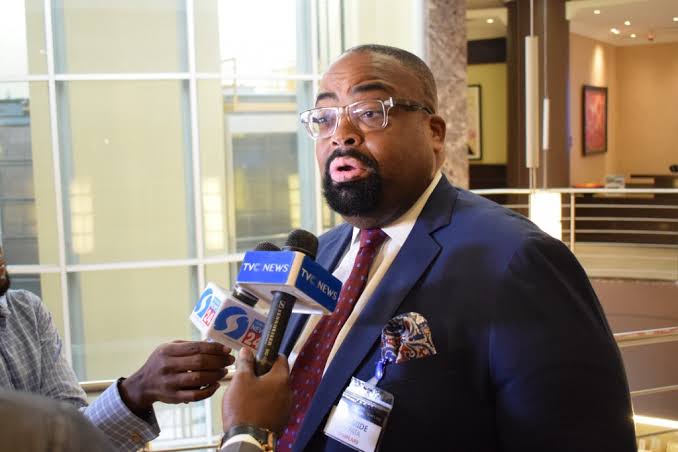
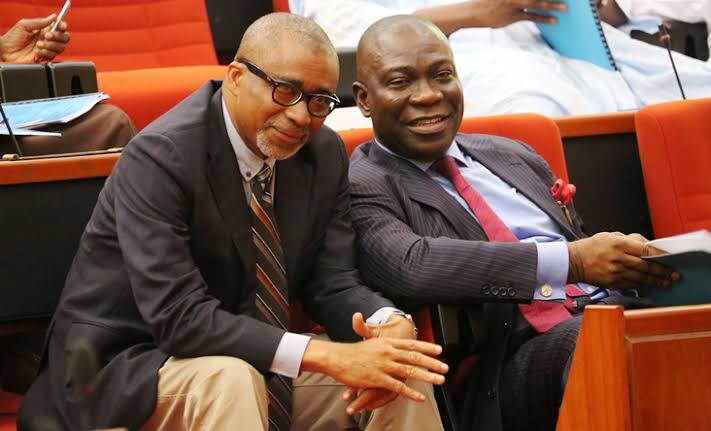
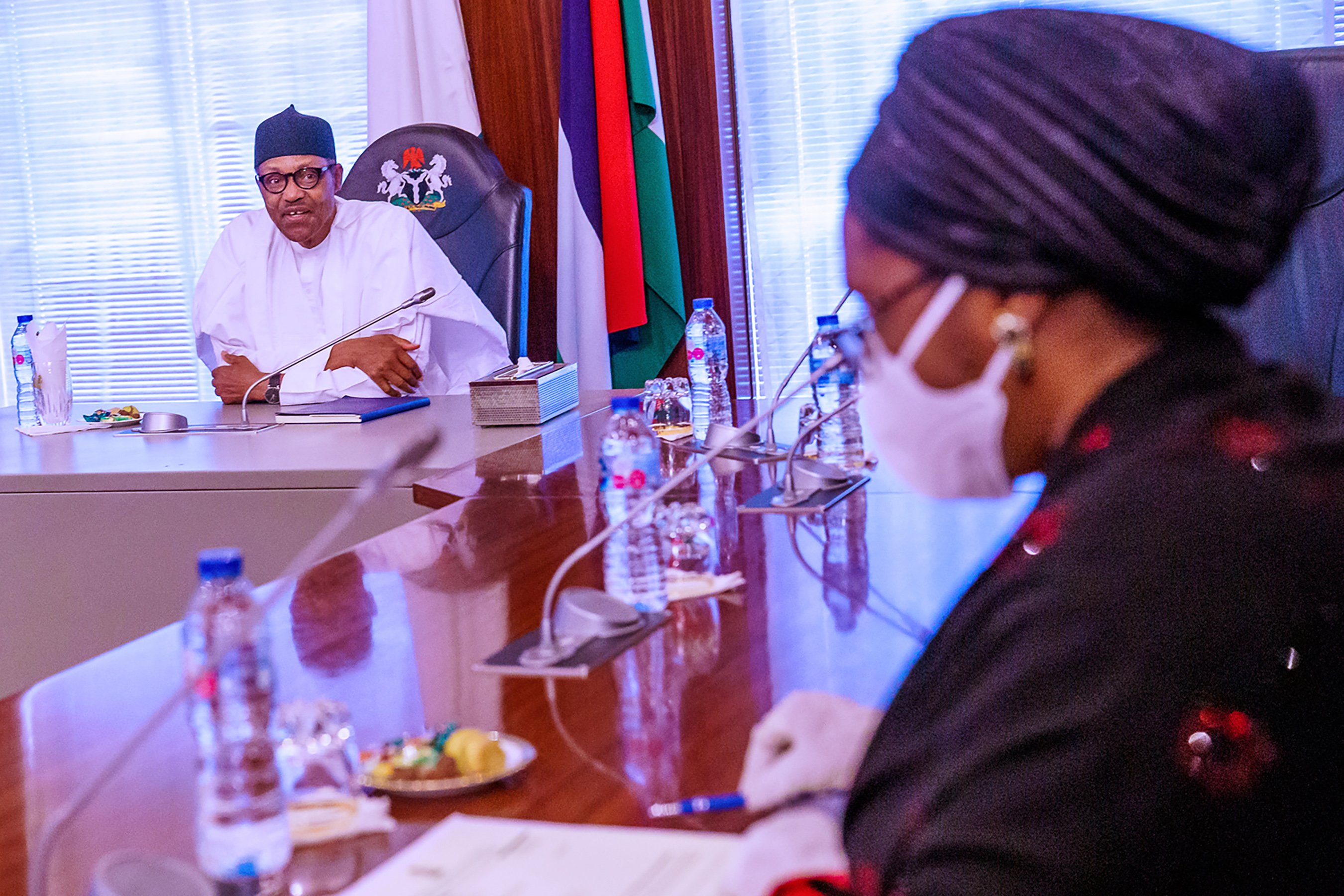
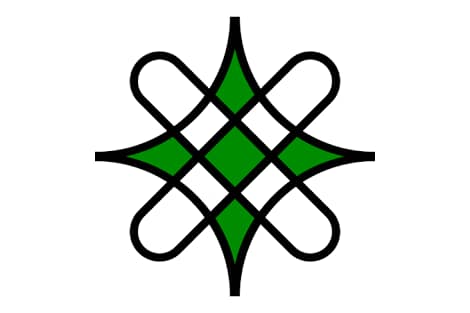
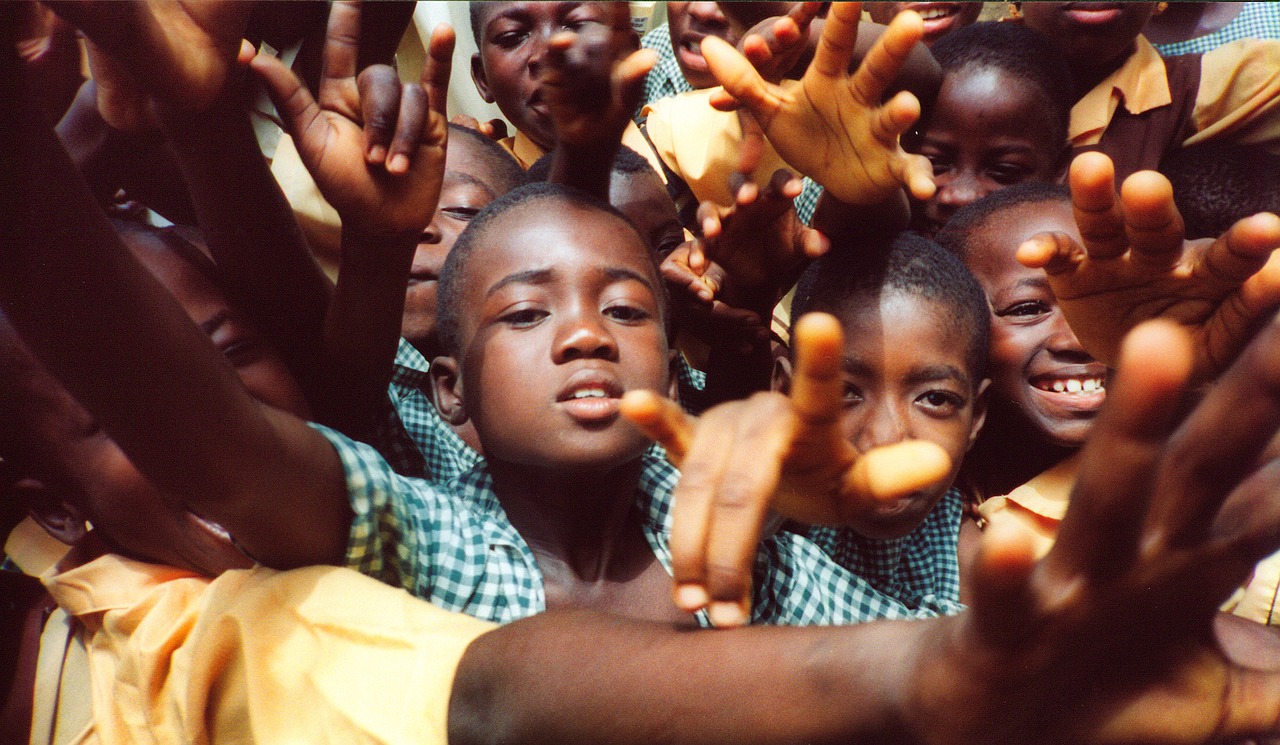
Well articulated viewpoint. I couldn’t agree more with your views.